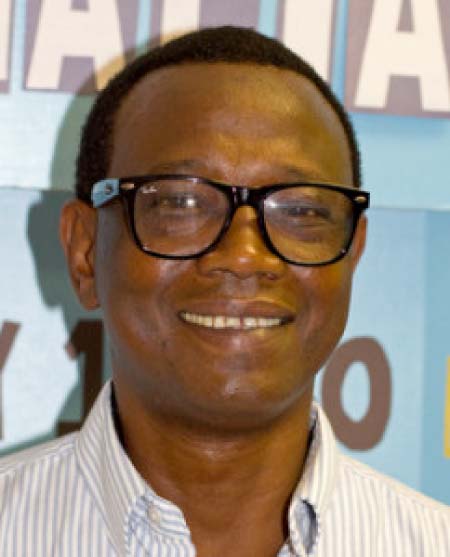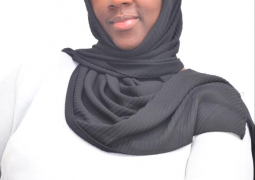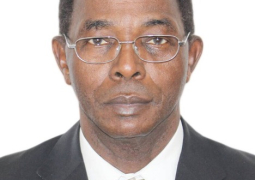
The Gambia, like many countries around the world, has been in an unhappy state of economic hardships and political discontent for a long time. Like Gambia’s, many economies around the world remain weak and are at the danger of total collapse without the benefit of external aid.
It has gotten so bad that we can now legitimately talk of government by begging in Africa and other parts of the world where poverty is rampant and nations feel helpless to do anything about the plights of millions of impoverished citizens. Politically, these countries are stuck in a state of constant political bickering, latent or actual conflict, and impotence in the face of biting and growing socio-economic challenges and an ever rising mountain of unmet public needs.
An inevitable corollary to this difficult state of affairs in The Gambia and elsewhere is blaming the system. One must hasten to add that in almost all cases, system failure, that is to say government failure contributes significantly to this sad state of affairs. Political and bureaucratic incapacity to identify viable and lasting solutions exist side by side with a fragmented political mentality marked by hostility and lack of vision for the country. Civil society organizations do their work to the extent they are equipped to, but still within a fragmented civic environment and a disorganized and chaotic social environment. But system blaming does not seem to be working either, because even in the unusual event of a change of government, perennial problems of human survival and human happiness persist, making significant segments of the human community communities of perpetual discontent.
Even well-meaning governments in these difficult countries often find themselves incapable of overcoming some of the most challenging conditions in their countries. The poverty has lasted so long it seems destined to be permanent; there are too many poor people; there are too many sick people; there are too many unemployed people; there are too many underpaid people; there are too many pot-hole ridden streets and unpaved roads; and there are too few resources, understood as the material resources needed to run a country but are constantly depleted by the repayment of untenable foreign debts; debts clearly accumulated for no use because conditions in these countries have only progressively worsened in spite of billions of dollars in debt monies. An impersonal, amoral, unforgiving and threatening economic superstructure looms large and demands due payment of monies borrowed by poor countries over decades and for which poor countries have nothing to show. Sadly, many of the failed systems derided and blamed for the social difficulties in these countries remain visibly incapable of finding a way out of what has now become a perpetual conundrum of incapacity.
Certainly, the faults for which most systems are blamed are rightfully theirs. Whether the system is capitalist, socialist or some strange hybrid or unstable ideological hodgepodge, it is their responsibility to create the conditions for happiness needed by their societies. Having assumed responsibility for the welfare of society, they can in no way be excused from blame if they fail to bring about the welfare of society. Limited resources and debt burdens are no excuse for the persistence of severe problems of political hostility, widespread unemployment, chronic under-employment, poor health services, poor educational facilities, poor roads, pot-hole ridden streets, and ultimately, a perpetually stretched, desperate and unhappy population.
However, system failure clearly does not define the collectives that are nations, and takes nothing away from the fact that human societies are capable, by proper deployment of their collective intellect, to overcome most challenges that arise in their environments and aspire to a state of relative happiness. Deployments of other national collectives such as nationalism and patriotism are only useful relative to specific situations and within particular contexts. Gambian nationalism bred independence but in the space of independence, it remains fragmented according to partisan political affiliation and is deployed, not so much against external foes, but against segments of the nation for which it purports to speak and whose wholeness it seeks to promote. Patriotism is doing no better. AllGambians share the same love of country, but that love of country has not been able to prevent bitter political acrimony and even enmity among our political communities. Each political community aspires to leadership of the country and some offer leadership in many particular domains of national life; but all this activity happens in a fragmented political landscape within an environment of shared difficulties whose solutions elude us from year to year.
The reality is that we must search for answers that might ultimately be premised on our love of country – on nationalism and patriotism - but that must be anchored in the fact of our humanity. In other words, it might be worth taking a serious look at the proposition that societies can only really succeed if they recognize, embraceand positively expressthe fact of their collective humanity and their collective intellect, and if they then deploy that collective humanity and collective intellect in developinga just community – the only kind of community that can actualize a happy society: a society that will still face some challenges, but a society in which the majority of people are reasonably content with their lives. As one great scholar put it, “the error of modern man is that he wants to reform the world without having either the will or the power to reform man, and this flagrant contradiction, this attempt to make a better world on the basis of a worsened humanity, can only end in the very abolition of what is human, and consequently in the abolition of happiness too.”
In the final analysis, if we must move our society towards happiness, we must look within ourselves and our relations with each other for the pathway. It can be done and it would not be a bad idea to try.
God bless The Gambia and all Gambians, their families and loved ones everywhere.





